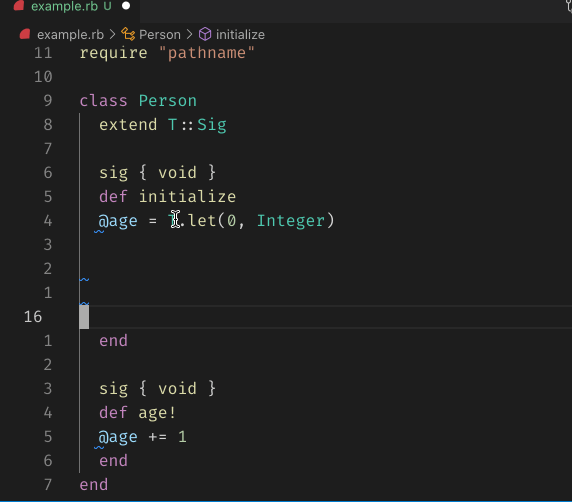class RubyLsp::Requests::Formatting

The formatting request uses RuboCop to fix auto-correctable offenses in the document. This requires enabling format on save and registering the ruby-lsp as the Ruby formatter.
The rubyLsp.formatter setting specifies which formatter to use. If set to auto then it behaves as follows: * It will use RuboCop if it is part of the bundle. * If RuboCop is not available, and syntax_tree is a direct dependency, it will use that. * Otherwise, no formatting will be applied.
Example¶ ↑
def say_hello puts "Hello" # --> formatting: fixes the indentation on save end
Public Class Methods
new(global_state, document)
Calls superclass method